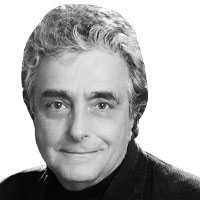World
Photo Illustration by Elizabeth Brockway/The Daily Beast/Getty
‘Pain in the Neck’: The Most Cursed Member of NATO Revealed
‘BIG MAN WITH A BAD TEMPER’
The bane of NATO’s cocktail parties has been humiliating the alliance for years—and it’s only getting worse.

Trending Now





